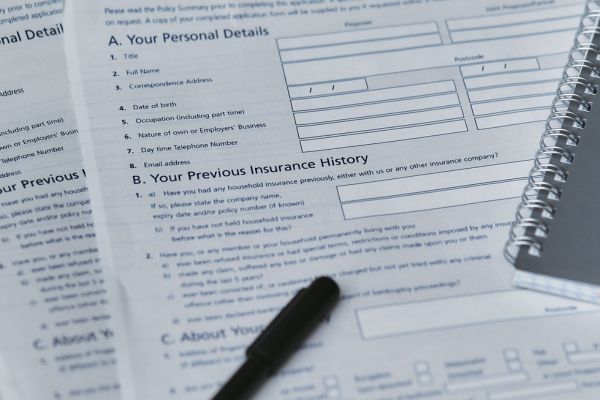Do Electricians Need Professional Indemnity Insurance?
Working with wires and electricity poses inherent dangers, where even a minor mistake can result in significant financial losses for both you and your client. Thus, it’s crucial to have insurance coverage to safeguard against such potential liabilities. While there are various insurance options available to electricians, professional indemnity insurance stands out as a highly recommended choice. Let’s delve into what it entails.
Professional indemnity insurance, like most insurance policies, serves to protect the policyholder by compensating them for losses covered under the agreement. However, its focus lies in covering damages resulting from errors or, in certain instances, malpractice, leading to losses for the client. Additionally, it safeguards against claims arising from negligence or failure to perform, which could lead to legal disputes or financial setbacks. Under this policy, the insured pays periodic premiums, and the insurer provides coverage as per the terms outlined in the contract.
Now, do electricians truly need professional indemnity insurance? The answer is a resounding yes. Given the high stakes involved in working with electricity, even the smallest oversight can result in substantial financial repercussions. Electricians heavily rely on their expertise and judgment, making errors a possibility. For instance, a simple mistake like installing the wrong fuse or connecting wires incorrectly can lead to circuit damage or even a fire, prompting legal action from the client.
Consider this scenario: an electrician advises a client to use a specific gauge of wire for house wiring. However, voltage fluctuations subsequently cause the wires to fail, damaging expensive appliances. If the client files a claim against the electrician for providing inadequate advice, professional indemnity insurance would cover the costs of litigation as well as any damages awarded by the court.
The importance of professional indemnity insurance for electricians cannot be overstated. Here are some key reasons:
1. Risk Reduction and Legal Defense:
- Electricians often deal with intricate electrical systems where unforeseen challenges may arise, despite their expertise. In such cases, professional indemnity insurance offers protection by covering legal defense costs and potential damages, minimizing financial strain on the electrician.
Professional indemnity insurance serves as a safety net, providing financial protection in the case of an error or oversight that results in financial loss for the client.
Reducing risks associated with delivering professional services and shielding electricians from potential legal consequences is one of the primary benefits of professional indemnity insurance. Additionally, here are some other key advantages:
2. Client Trust and Business Credibility:
- Professional indemnity insurance enhances an electrician’s credibility in the eyes of clients, signifying a commitment to accountability and delivering high-quality service. Knowing there’s financial protection in place instills confidence in clients, leading to increased trust and potentially resulting in positive referrals and long-term client relationships.
3. Contractual and Regulatory Compliance:
- Professional indemnity insurance is often a contractual requirement, with clients mandating its presence for contract engagement. Similarly, regulatory bodies or industry associations may stipulate this coverage as part of licensing prerequisites. Failure to adhere to these mandates can lead to legal and professional repercussions.
Understanding Coverage Specifics:
1. Scope of Coverage:
- Professional indemnity insurance typically covers clients against financial losses resulting from an electrician’s professional negligence, errors, or omissions. This includes scenarios like faulty wiring, installation errors, or non-compliance with industry standards, covering legal fees and compensation for affected parties.
2. Exclusions and Limitations:
- While comprehensive, professional indemnity insurance may have exclusions such as deliberate misconduct, criminal acts, or contractual disputes. It’s imperative for electricians to review policy terms thoroughly to grasp what’s included and excluded.
Claims Procedure and Reporting:
- In the event of a potential claim, electricians must adhere to the claims reporting process outlined in their insurance policy. Timely and accurate reporting facilitates prompt investigation and resolution by the insurer, preventing claim delays or denials.
Consequences of Lack of Professional Indemnity Insurance:
Financial Liability:
- Not having professional indemnity insurance exposes electricians to significant financial liabilities. In instances where clients suffer financial losses due to professional negligence, electricians may be personally liable for costs, jeopardizing personal assets and business viability.
Legal Ramifications:
- Electricians without professional indemnity insurance may face legal action without a safety net. Legal defense expenses can be substantial, and if found liable, hefty restitution payments may be required, impacting financial security and professional reputation.
Loss of Business Opportunities:
- Clients, particularly in commercial and industrial sectors, may be hesitant to engage electricians lacking professional indemnity insurance. This could result in missed business opportunities and reduced market competitiveness, as clients prefer providers with adequate insurance coverage.
Distinguishing Between Indemnity Insurance and Personal Liability Insurance:
While both types of insurance offer protection, they differ in nature. Public liability insurance safeguards against physical property damages, while professional indemnity insurance protects against losses arising from intangible services, such as providing incorrect advice or making errors during work.
In conclusion, professional indemnity insurance is not merely a safety net but a strategic asset for electricians. It mitigates unforeseen risks, enhances business credibility, and is often a prerequisite for professional engagements. Electricians should consider it a vital component of their risk management strategy.






